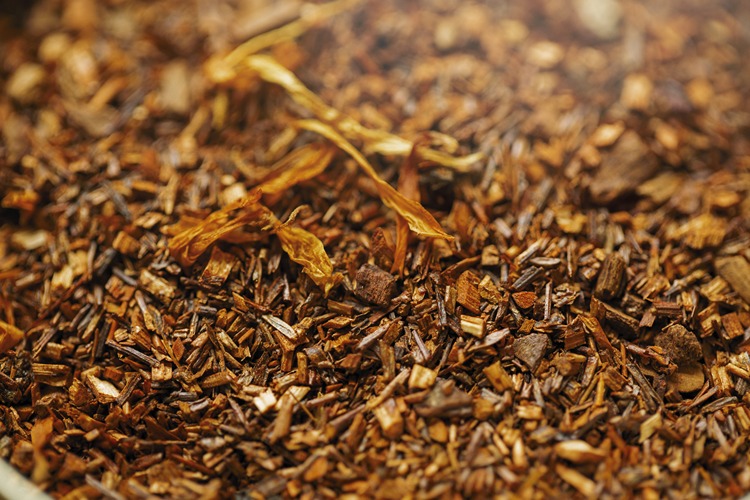Getting a good night’s sleep is essential for overall health and well-being. However, in today’s fast-paced world, many individuals struggle with insomnia and sleep disturbances. If you’re looking for a natural and effective way to improve your sleep quality, chamomile tea may be the answer. In this in-depth guide, we will explore the origins of chamomile tea, its benefits for sleep, the science behind its effects, how to prepare and enjoy it, and its various health benefits. Discover the soothing power of chamomile tea and unlock the secrets to a restful night’s sleep.
Understanding Chamomile Tea
The Origins of Chamomile Tea
Chamomile tea has been used for centuries for its therapeutic properties. The word “chamomile” derives from the Greek word “khamaimēlon,” which means “earth apple,” referring to its apple-like aroma. The tea is made from the dried flowers of the chamomile plant (Matricaria chamomilla or Chamaemelum nobile) and is known for its calming and soothing effects.

The Benefits of Chamomile Tea
Chamomile tea offers a range of benefits beyond its sleep-promoting properties. It is known for its anti-inflammatory, antioxidant, and anti-anxiety effects. Regular consumption of chamomile tea may help reduce inflammation in the body, boost the immune system, relieve digestive issues, and promote overall well-being.
The Science Behind Better Sleep with Chamomile Tea
How Chamomile Tea Promotes Sleep
The sleep-promoting effects of chamomile tea can be attributed to its unique chemical composition. Chamomile contains several bioactive compounds, including apigenin, which binds to specific receptors in the brain that help induce sleep and reduce anxiety. Apigenin also has mild sedative properties, promoting a state of relaxation and calmness.
The Relaxing Effects of Chamomile
Chamomile tea has long been revered for its relaxing properties. It acts as a mild tranquilizer, soothing the nervous system and reducing stress levels. The aroma and flavor of chamomile tea create a sensory experience that can help prepare the body and mind for a restful night’s sleep.
Preparing and Enjoying Chamomile Tea
Choosing High-Quality Chamomile Tea
When selecting chamomile tea, opt for high-quality, organic varieties to ensure maximum flavor and therapeutic benefits. Look for whole chamomile flowers or loose-leaf tea for the best quality. Avoid tea bags that contain crushed or powdered chamomile, as they may have lost some of their potency.
Proper Brewing Techniques
To extract the full flavor and benefits of chamomile tea, follow these brewing techniques:
- Boil fresh, filtered water.
- Place one tablespoon of chamomile flowers or a chamomile tea bag in a cup or teapot.
- Pour hot water over the chamomile.
- Let it steep for 5 to 10 minutes to allow the flowers to infuse the water.
- Strain the tea or remove the tea bag.
- Sip and savor the soothing flavors of chamomile tea.
Feel free to add a touch of honey or a squeeze of lemon to enhance the taste, but avoid adding milk as it may interfere with the delicate flavors of chamomile.
Exploring the Health Benefits of Chamomile Tea
Promotes Relaxation and Reduces Anxiety
Chamomile tea is renowned for its calming effects on the body and mind. It can help reduce anxiety, alleviate stress, and induce a sense of relaxation. Drinking chamomile tea before bedtime can create a peaceful bedtime routine and prepare the body for sleep.
Aids in Digestion and Soothes Stomach Discomfort
Chamomile has long been used to support healthy digestion. It can help soothe an upset stomach, reduce bloating and gas, and relieve symptoms of indigestion. Drinking chamomile tea after meals can aid in digestion and promote overall gastrointestinal well-being.
Relieves Menstrual Pain and Cramps
For women experiencing menstrual pain and cramps, chamomile tea may offer natural relief. Its anti-inflammatory properties can help alleviate discomfort and reduce muscle spasms. Sipping on warm chamomile tea during menstruation can provide a soothing effect and ease menstrual symptoms.
Supports a Healthy Immune System
Chamomile tea is rich in antioxidants that help protect the body against free radicals and strengthen the immune system. Regular consumption of chamomile tea may help reduce the risk of infections and promote overall immune health. It’s a gentle way to support your body’s defense mechanisms.
Has Anti-inflammatory and Antioxidant Properties
The bioactive compounds present in chamomile, such as flavonoids and terpenoids, exhibit potent anti-inflammatory and antioxidant effects. These properties contribute to reducing oxidative stress, fighting inflammation, and promoting overall cellular health. Incorporating chamomile tea into your daily routine can be a valuable addition to your wellness regimen.
FAQs about Chamomile Tea
Q: Is chamomile tea safe for everyone to drink?
A: Chamomile tea is generally safe for most individuals to consume. However, individuals who are allergic to plants in the daisy family, such as ragweed or chrysanthemums, should exercise caution or consult with a healthcare professional before consuming chamomile tea.
Q: Can chamomile tea be consumed during pregnancy?
A: While chamomile tea is generally considered safe for pregnant women, it’s advisable to consult with a healthcare provider before incorporating it into your routine. Some studies suggest that chamomile may have uterine-stimulating effects, which could potentially lead to complications during pregnancy.
Q: Can chamomile tea be used as a remedy for insomnia?
A: Chamomile tea has long been used as a natural remedy for sleep-related issues, including insomnia. Its calming and relaxing properties can help ease anxiety and prepare the body for sleep. However, it may not be effective for everyone, and it’s important to address any underlying causes of insomnia with the guidance of a healthcare professional.
Additional Resources
- National Sleep Foundation (NSF): The NSF is a trusted organization dedicated to promoting healthy sleep. Visit their website www.sleepfoundation.org for comprehensive information on sleep disorders, tips for better sleep, and the role of chamomile tea in improving sleep quality.
- PubMed: PubMed is a vast database of scientific literature. Explore studies and research papers on chamomile tea’s effects on sleep, anxiety, and various health conditions by visiting pubmed.ncbi.nlm.nih.gov.
- University of Maryland Medical Center (UMMC): The UMMC provides reliable information on complementary and alternative medicine. Their website www.umm.edu offers insights into chamomile tea’s benefits, uses, and potential interactions with medications.





